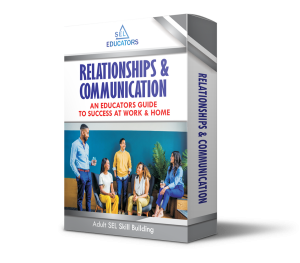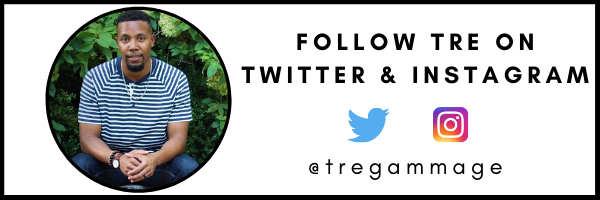TL;DR:
- Strong relationships lead to more success.
- Be flexible with your communication style to help support everyone.
In 2016, LinkedIn published an article declaring that 85% of jobs are filled through networking. And most of these jobs are filled before they are even posted online (Adler 2020). This has nothing to do with education but everything to do with relationships. They rule the world. And your school community is no different.
Motivation doesn’t last!?
Throughout my education journey, I’ve had roles focused on student and staff well-being. It’s really hard to keep people motivated. That’s because motivation doesn’t last. After 90 days motivation towards a goal or initiative starts to fade (Job, 2019).
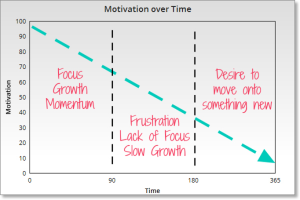
Job, K. (2019, December 2). How I use my bullet journal to set (and achieve) 90 day goals! Sublime Reflection. Retrieved October 4, 2022, from https://sublimereflection.com/set-90-day-goals/
But Denise R. Superville had some wonderful insights from school leaders in her recent article from Education Week (Superville, 2022) about how to keep teachers motivated all year long! To summarize:
- Make sure all your staff has access to the resources and support links they need to be successful as soon as possible.
- Be strategic about celebrating your staff: collect shirt sizes, hobbies, and favorite things and use this information to plan intentional celebrations for your staff when they need it most.
- Build relationships. No one likes uncertainty. The more transparent and upfront you can be with your staff, the readier they will be to go take care of business for you.
This summer, I transitioned out of the K-12 Dean of Students role back into full-time consulting. And part of what I miss most is my relationship with the kids.
I stay involved with College & Career support, so I still see them. And when I do, they make me feel special when they say they miss me or still reach out for help.
These subtle changes you use to accommodate your fellow teachers, school leaders, or students can be the difference between a stressful school year and an exciting one! Share on XTeachers with strong student relationships are less exhausted.
It’s true students who have warm and trusting relationships with their teachers do better in school. The same is true for staff. Teachers who have relationships characterized by conflict at school feel more exhausted (Alamaos & Corbin, 2022). And teacher well-being matters because teachers are humans. And humans deserve to thrive.
My mission over the past 5 years has been to support adult social-emotional competence to impact students’ social-emotional needs. There are some key ideas I’ve seen help teachers thrive. I’ve worked with 20 school communities and 400 educators to learn 3 strategies that lead to successful relationships at work and at home.
- Treat people the way they want to be treated.
- Recognize tension in relationships.
- Create win-win situations.
Treat people how they want to be treated.
Growing up, we all learned the Golden Rule: Treat others the way you want to be treated. But I’ve found the platinum rule to work much better. Treat people the way THEY want to be treated.
It sounds like this is a skill that will take a lot of work. But there are actually two questions that are easy to remember and help you understand the most effective way to communicate with others.
- Question 1: Are you direct (fast-paced) or indirect (slow-paced) in your communications? (Direct & Indirect descriptions)
- Question 2: Are you guarded (task-oriented) or open (people-oriented) in your communications? (Opened & Guarded descriptions)
Knowing the answer to these two questions helps you to identify where tension will come from, even in the best relationships.
Even the best relationships have tension.
Tension exists even in the strongest relationships. The two power questions above help provide a better understanding of your own and other people’s communication preferences.
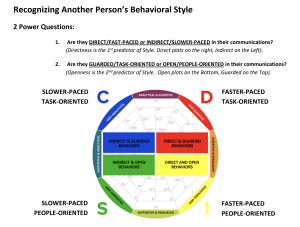
In the Communication Style Wheel, there are designations for Pace: Fast- or Slow-Paced, and Priority: People- or Task-Oriented.
For example, if I operate at a faster pace, and I’m going to a meeting with someone that’s more slow-paced and methodical, I can make slight adjustments. I can speak and move at a slower pace, be patient, avoid rushing, or operate more formally (follow the agenda).
The chart below shows which styles have natural tension due to their pace, priority, or both.
This information alone has helped me to build stronger relationships all over the nation and the world. But knowledge is only potential until it is applied.
[scroll down to keep reading]Create Win-Win Situations
Create outcomes that bring value to your entire school community or to all parties involved.
Start spending intentional time at home and work with people you trust but also have different styles than you. Explore ways to communicate more effectively with them by practicing:
- Identifying communication styles based on observable behavior
- Modifying your directness and openness
- Modifying pace & priority
As you start to get comfortable in your practice, you’ll be able to meet the needs of the 4 primary communication styles.
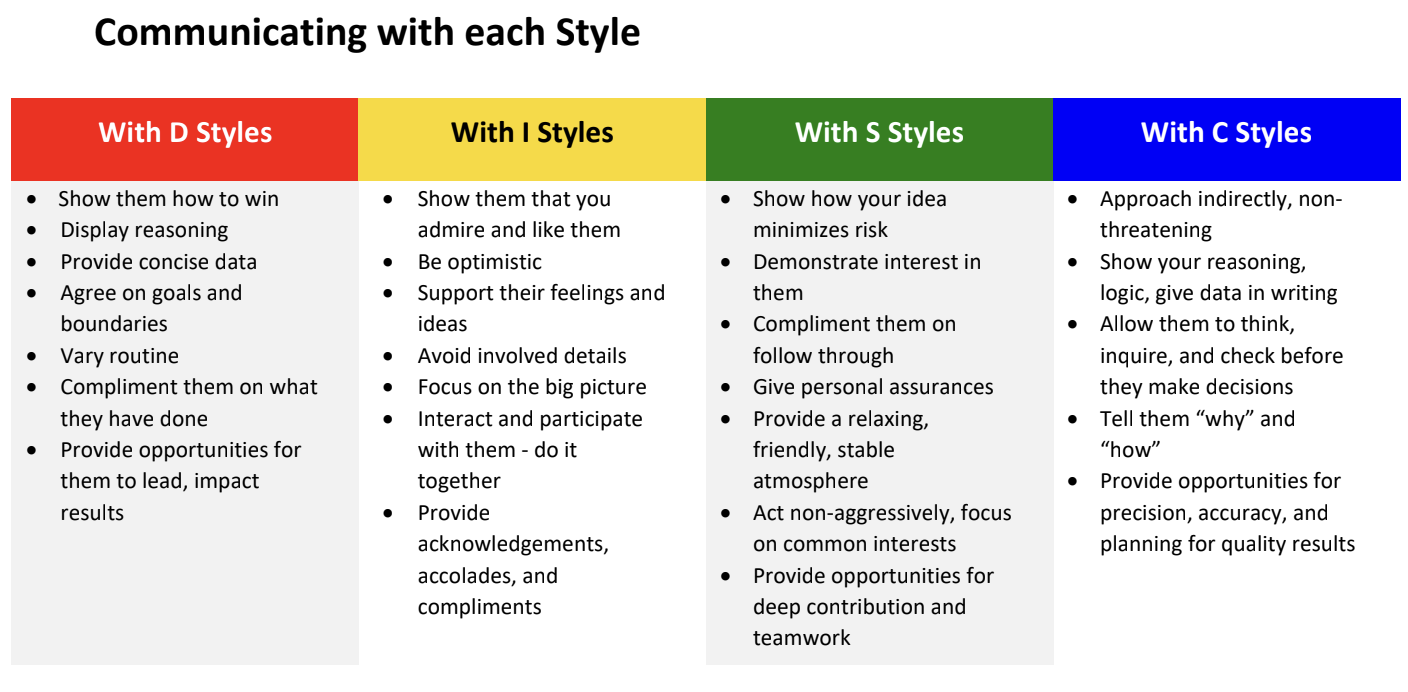
This blog is filled with information about how you can support educator stress and well-being through SEL.
These subtle changes you use to accommodate your fellow teachers, school leaders, or students can be the difference between a stressful school year and an exciting one!
If you liked this blog, we definitely have more for you. Here’s a link to the free Relationships & Communication webinar, which includes 45 minutes breakdown of what we covered today, and a workbook that you can use independently or in a school setting.
And remember, building relationships and effective communication skills is not an overnight process but one that takes time. We have to continue working day by day.
For more Adult SEL Resources, visit our SEL Downloads page.
References
Adler, L. (2020, August 18). New survey reveals 85% of all jobs are filled via networking. LinkedIn. Retrieved October 4, 2022, from https://www.linkedin.com/pulse/new-survey-reveals-85-all-jobs-filled-via-networking-lou-adler/
Alamaos, D. P., & Corbin, D. C. (2022, August 23). Not only do students need strong teacher-student relationships… teachers need them, too! CASEL. Retrieved October 2, 2022, from https://casel.org/blog/not-only-do-students-need-strong-teacher-student-relationships-teachers-need-them-too/
Job, K. (2019, December 2). How I use my bullet journal to set (and achieve) 90 day goals! Sublime Reflection. Retrieved October 4, 2022, from https://sublimereflection.com/set-90-day-goals/
Superville, D. R. (2022, September 30). Keep School staff motivated all year long: Advice from principals. Education Week. Retrieved October 2, 2022, from https://www.edweek.org/leadership/keep-school-staff-motivated-all-year-long-advice-from-principals/2022/09
About Tre Gammage
Dean of Students & SEL Consultant, Tre’ Gammage has always had a passion for helping others. With a vast background in speaking, podcasting, and consulting, Tre’ was once told “when you see someone living their dream, it makes you want to be a part of that dream” and he’s been living by that motto ever since.
In 2017, Tre’ started The Gammage Consulting Group, An Adult SEL Focused education consulting firm helping K-12 school communities support teachers’ social-emotional competence to impact students’ social-emotional and academic outcomes.
Tre’ believes in making it easier to do what you love, your job as an educator is to prepare the next generation for success. Having strong Social & Emotional Intelligence is foundational to impacting student outcomes.
To learn more information visit seleducators.com or listen to The Dash Podcast on Youtube, Itunes, Spotify.


